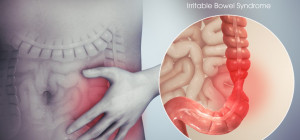
A lot of people now choose to opt for bariatric surgery. This is actually an umbrella term for a range of different types of procedures, each with their own methods, pros and cons. When you find gastric balloon specialists, for instance, they will have different things to tell you than if you were to find lapband specialists. However, all of them will start by giving you a pre-operative diet. This diet will generally be customized specifically to your individual needs. You have to make sure that you start making some lifestyle changes to your daily diet so that you have a greater control over what you do and do not ear. Additionally, it will help to prepare your body for surgery. Unfortunately, this type of diet is not easy to complete, but you must find a way to stick to it.
The Preoperative Diet
Generally speaking, your diet will include many high protein foods with low calories, low carbohydrate levels and low amounts of fat. The effort you will have to put in to stick to your preoperative diet will already help you lower the body fat you are storing, particularly around your liver. It will also help to preserve and protect the tissue of your muscle, make overall weight loss go quicker and make it easier and quicker for you to recover from the surgery.
How long you have to follow the preoperative diet will vary greatly depending on you as an individual and the type of bariatric procedure you opt for. Usually, you will have to start this diet around three months before you actually have the procedure completed for duodenal switches and gastric bypasses. However, for a gastric band, you will usually only have to follow a preoperative diet for around three weeks.
As stated, different patients and different procedures require different diets. However, there are a number of common guidelines that tend to be given to all patients, regardless of the procedure they choose, their weight or their underlying healthy conditions. These are:
- To stop consuming alcohol.
- To stop smoking.
- To lower carbohydrate intake.
- To stop eating fast foods and other foods that are high in calories. This will help patients start to lose fat around their stomach and liver. It is very important that the size of the liver shrinks to minimal levels so that the chance of surgical bleeding is reduced as well. Usually, patients will be recommended to consume between 800 and 1,200 calories each day.
- To no longer eat meat with high fat levels and whole dairy products. This includes chocolate.
- To lower the amount of foods that are very sweet.
- To change dietary intake to healthy products such as yoghurt, fish, oats, eggs, vegetables and fruits.
- To take protein powder and supplements as per doctor's advice (usually between 70 and 120 grams per day).
It is very important to stick to whatever diet is prescribed to you by your bariatric surgeon before your procedure. Equally, you must stick to the post-operative diet.







